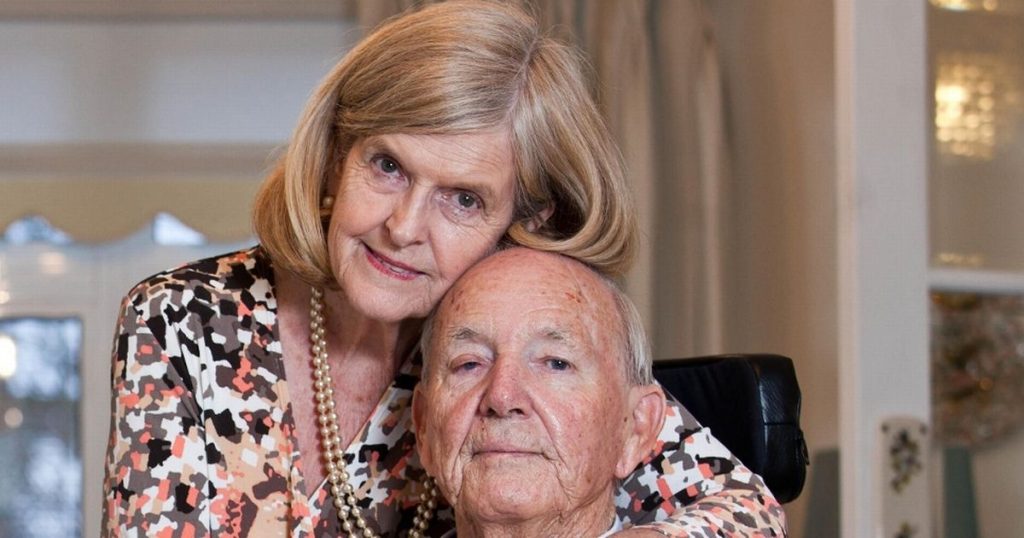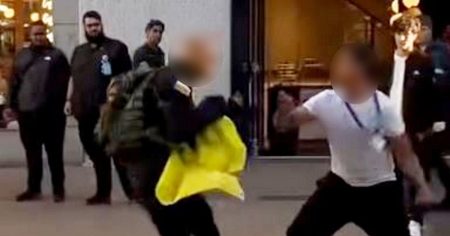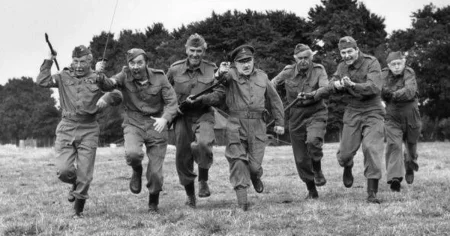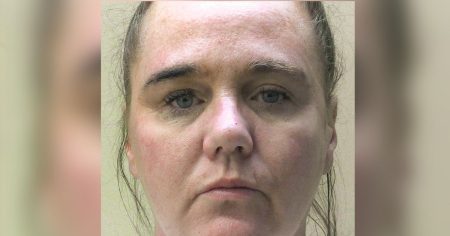Summarize this content to 2000 words in 6 paragraphs After agreeing to help with her husband’s final wishes, Ann Whaley, who once worked with Dame Esther Rantzen, had no idea that she was putting herself at risk of 14 years behind bars17:54, 28 Mar 2025Updated 17:59, 28 Mar 2025Dame Esther Rantzen speaks about assisted dying in 2024On Christmas Eve 2018, Ann Whaley headed out to sing in the church choir – a rarity for her, given that she was never usually able to leave the side of her beloved husband, Geoff Whaley. That night, however, Ann and Geoff’s son had returned to the family home for one final Christmas with his dad, who’d by that point made the decision to die at Dignitas.Much like Dame Esther Rantzen, who has sadly stopped responding to her treatment for terminal cancer, Geoff had expressed a wish to die on his own terms, with the trip booked for February 2019. Geoff, 80, suffered from motor neurone disease (MND), a condition which had left him paralysed from the neck down The father-of-two, remembered as “a very dignified man”, was also rapidly losing his ability to communicate while being fully conscious of his situation, facing a grim future Ann likened to “being buried alive”.That December, Geoff lost the last bit of movement he had in the last digit of his right hand, rendering him unable to use his iPad. It was then that he asked one final question of his devoted wife of 52 years—that she book flights and a hotel for them in Switzerland ahead of their final journey together. Geoff had already organised everything else using his iPad, but with his last tiny bit of movement gone, he needed Ann’s help.For Ann, there was no question of her saying no. She told the Mirror: “What am I expected to do? Have an argument with my husband, who just asked me to do these final two things for him? Of course, I wouldn’t.” As Ann lovingly carried out her husband’s final wishes, she had no idea that she was putting herself at risk of 14 years behind bars.READ MORE: Dame Esther Rantzen’s heartbreaking fear if she’s denied death on her own terms at DignitasGeoff suffered from motor neurone disease (MND)(Image: Ann Whaley)On the night of the choir practice, Ann’s first evening away from Geoff in two years, her fellow members asked her to join them for Midnight Mass, which she did. She didn’t know at the time that an interaction with a churchwarden and the new vicar would turn her world upside down.As they processed out of the service, Ann called out the new vicar, who she noted hadn’t contacted her so much as once despite her and her husband’s active involvement in the church. He informed her he’d been busy before letting out a “gasp”. Ann continued: “Then the churchwarden came up and gave me a big hug, said, ‘It’s lovely to see you’. I said, ‘Well, we’ve got a date now, and at this, the vicar sort of drew his breath. But to cut a long story short, he reported me to the police for domestic abuse.”One of the most significant concerns among those who oppose the Assisted Dying Bill, which is still being considered in Parliament, is that unscrupulous individuals could use it to take advantage of vulnerable family members. This is exactly what Ann, who hadn’t even realised she had broken the law, found herself accused of.Shortly after the incident on Christmas Eve, there was a knock at the door. To Ann’s great surprise, it was the police. She recalled: “And of course, I said, ‘Do come in, would you like a cup of tea, etc’, and they were very mortified. It was a detective sergeant. It was the lower ranks, if you like, and a lady.”They were mortified to find, you know, a comfortably off couple – it’s very expensive to go to Dignitas, but we were comfortably off and could afford to go. But with somebody who was very vocal, confined to a wheelchair, and clearly not being pressurised.”A vicar alerted police after learning Ann and Geoff attended to fly out to Dignitas(Image: Ann Whaley)The red-faced detective sergeant “rushed back to speak” to the inspector in charge, who told him that they still needed to proceed. It was then that the officers returned to take Ann in for an interview under caution, with the septuagenarian suddenly finding herself locked in a room at a police station, facing the threat of 14 years behind bars.Thankfully, Ann had a “marvellous” criminal lawyer on hand who was able to help her navigate the unfolding nightmare. She was permitted to go home in the police car, but the ordeal was far from over. Ann said: “You can imagine that, a police car outside your house and all the neighbours effectively looking through the curtains.”Neighbourhood gossip aside, however, Ann was far more concerned about her husband and why she’d been taken away in the first place. The case went through the Crown Court, while Ann was required to stay put at home.She shared: “We couldn’t suddenly upstakes and get off to Switzerland. I’m not saying my passport was taken away, but I was trusted if you like. It was sort of, you know, to stay around. Anyway, we couldn’t have gone earlier because the date was fixed for when the assisted death would take place.”After seven days of being advised not to do anything, the inspector himself paid a visit to the house. Ann remembered: “He said, ‘I’m not prepared to discuss it’. But essentially, officers were told to drop the case because it was not in the public interest.”When Geoff asked Ann to make those two final arrangements for him, he was still able to talk. However, his voice was starting to fail him, and in Ann’s words, “he knew the time had come.” His consultant had also warned that he was nearing the very end and didn’t have three months to live.Ann has declared she will ‘fight to the end of her days’ to legalise assisted dying in the UK(Image: Ann Whaley)Had he waited any longer, Ann explained: “He’d been unable to speak. He would have been trapped. Unable to communicate in any way whatsoever, and he wouldn’t have been able to travel unless we got paid for the expense of a private flight to get us there.”Those final weeks, however, were marred in some ways by the intense media interest in Geoff’s case, with BBC cameras following the family as far as the airport. This, they had agreed to, wanting to shed light on Geoff’s story in a way that could push for change. But still, the attention was tough on their daughter, who feels “bitter” about those last few “precious” weeks she spent with her father, in a way that has greatly affected her.Having reached the other side of their legal ordeal, Ann and Geoff travelled to Switzerland in February as planned, accompanied by their children, their children’s partners and children’s godparents. Despite everything they went through as a family, Ann recognises their privilege in being able to make this journey together. Ann told us: “I will fight to the end of my days to get that available for people in this country who cannot afford it because it’s very expensive.”When the end came, Geoff died peacefully in Ann’s arms, telling her he loved her one last time. Ann shared: “Now, I’ve got friends who’ve lost their husbands in terrible circumstances, and their memories are dreadful. I have a lovely memory of my dear husband telling me he loved me. I mean, what more can a woman ask, really?Ann used to work with Dame Esther Rantzen (Image: PA)”Whereas I have friends whose husbands didn’t know them, whose behaviour with dementia meant that they lost them. My mother had dementia. She didn’t know who I was. I was just the nice lady who visited her. And my memories of a very loving mother were ruined, and I could do nothing to help her.”Ann remarried at the age of 80 to a man whose wife “went through similar experiences” following a tragic cancer diagnosis. The “very happily married” couple often talk together about their first spouses, and, six years on, Ann remains just as staunchly committed as ever to the cause of assisted dying.She said: “I’ve never been afraid. If I had to go to prison, I’d go to prison because, in my view, the law in this country over assisted dying as it stands at the moment is absolutely cruel. It’s the cruellest thing, and if I have to go, if I had to go to prison just to make a point, well then I’d go.”Ann once worked alongside Dame Esther during her early days at the BBC, and in later life, they now share an unshakeable commitment to changing assisted dying legislation. Both Dame Esther and her daughter Rebecca Wilcox, who Ann also knows, have opened up about their fears regarding prosecution should the broadcaster choose to fly out to Dignitas accompanied by family members.On this note, Ann remarked: “I’m totally relaxed about it, and I know Becky will be all right because no government would dare prosecute anybody who had compassion. It’s not in the public interest, and the present bill is very popular in parliament despite what the letters of the vocal few who tried to make out things that the safeguards will all cover anyway.””It’s ignorance really, you know, ‘Oh, the slippery slope and all the rest of it’. It just won’t happen. Very, very strict safeguards and very, very few people. You can’t just say, ‘Oh, I ‘ll get out of bed and say I want to visit’. It took months for my husband to go through all the tickboxes that were necessary in order to get what they call the green light in Switzerland. It’s not something that you get today and have tomorrow.”The Mirror has reached out to the Home Office for comment.Do you have a story tomorrow? Email me at [email protected] MORE: Esther Rantzen’s Dignitas wish that could lead to daughter’s arrest for manslaughter















